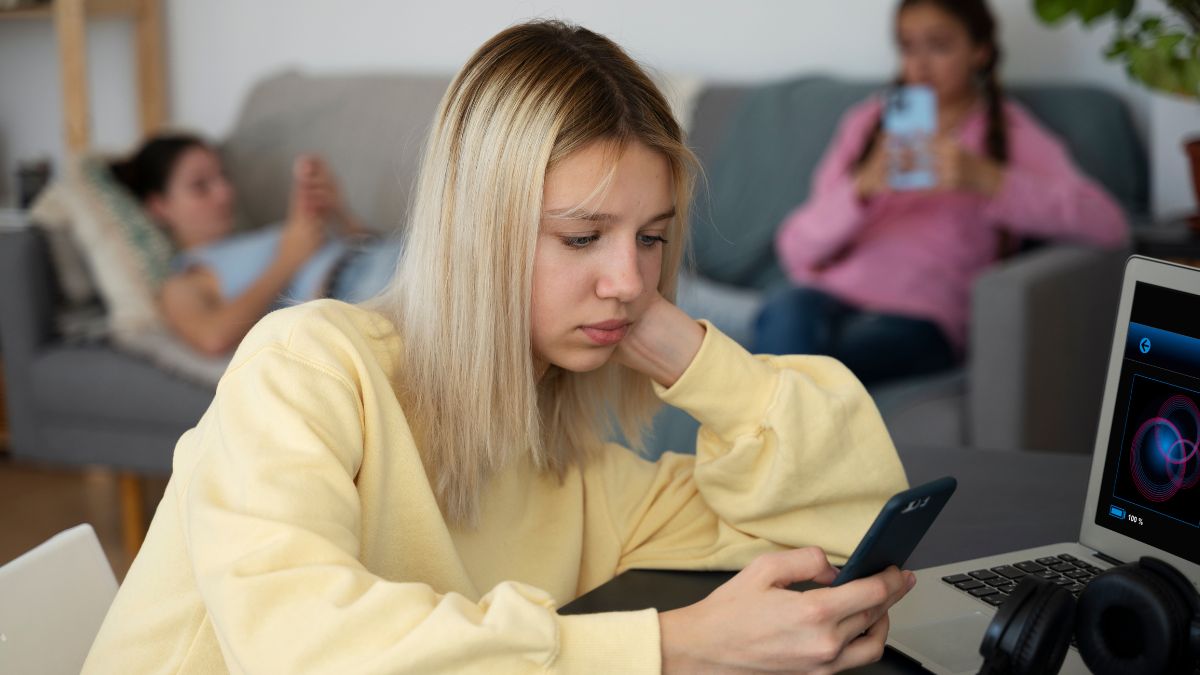You reach for your phone 144 times per day. That’s once every 10 minutes you’re awake. When was the last time you went an hour without checking your phone? 57% of Americans now admit they’re addicted to their smartphones. Phone usage jumped 14% in just one year. What started as a helpful tool has become an obsession that controls your daily life.
Maybe you’ve noticed the warning signs. You check your phone first thing in the morning. You feel anxious when the battery dies. You scroll through apps even when you’re bored with them.
People don’t know, there’s a clear line between heavy phone use and actual smartphone addiction. The difference matters because real addiction needs real solutions.
1. What Makes Phone Use Become Addiction?
Your phone buzzes. You grab it without thinking. Phone addiction isn’t just using your device a lot. It’s when you keep using it even though it hurts your life, work, or relationships. You know it’s a problem, but you can’t stop.
Phone Addiction Problem
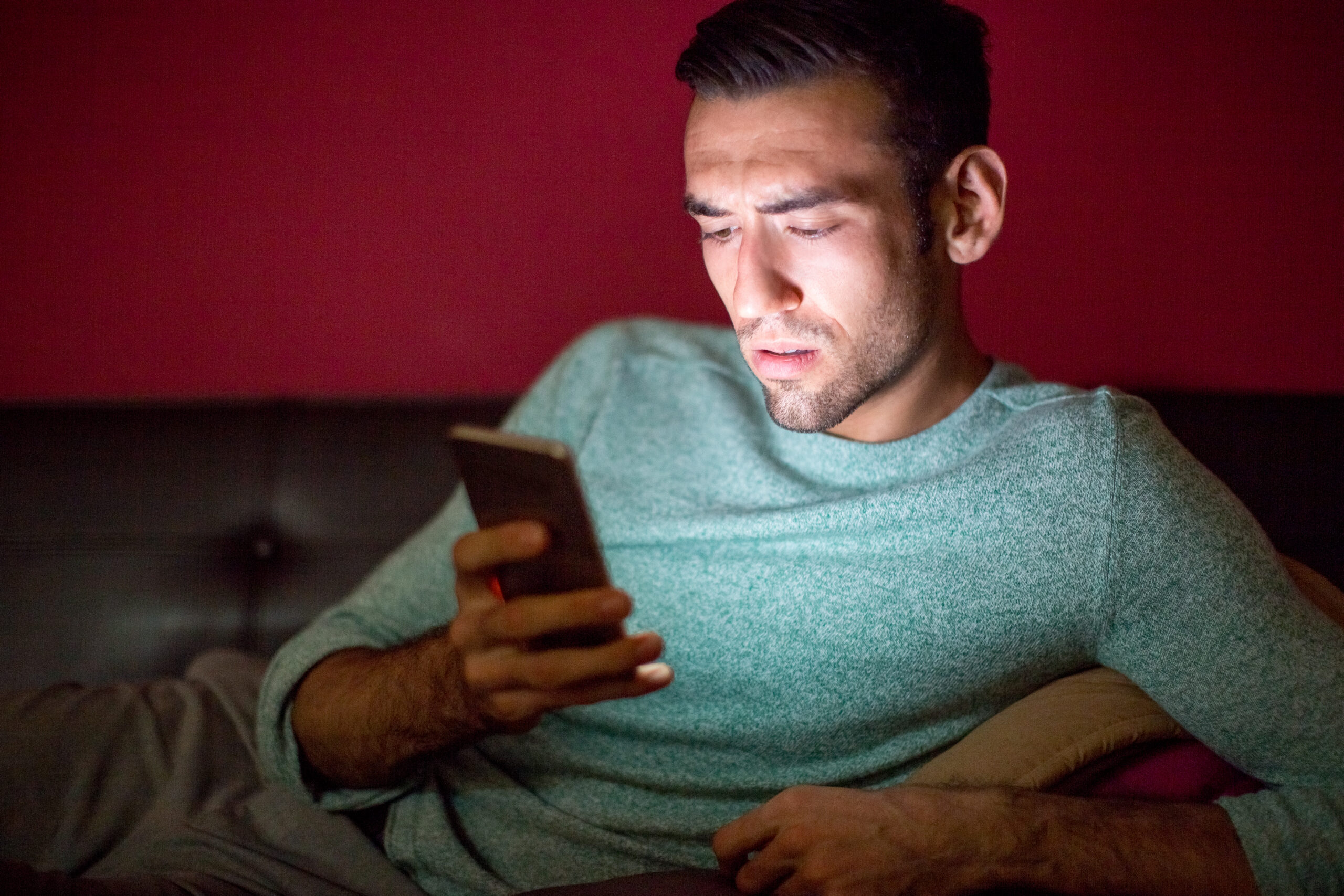
4.3 billion people own smartphones worldwide. That’s more than half the planet. In America, 57%of people admit they’re addicted to their phones. The average person spends 5 hours and 16 minutes on their phone every day. That’s like working a part time job.
Studies show 6.3% of people worldwide have true phone addiction. That might sound small, but it equals about 300 million people.
Your Brain on Phones

Every time you get a text, like, or notification, your brain releases dopamine. This is the same chemical that makes gambling and drugs feel good. Your phone becomes a slot machine in your pocket. You never know when you’ll get that next reward. So you keep checking.
Heavy Use vs. Real Addiction
Using your phone a lot doesn’t always mean addiction. Heavy users can put their phone down when needed. They don’t panic without it. Real addiction is different. You feel anxious without your phone. You check it during important moments. You lose sleep scrolling. Your grades or work suffer, but you still can’t stop.
Apps Want You Hooked
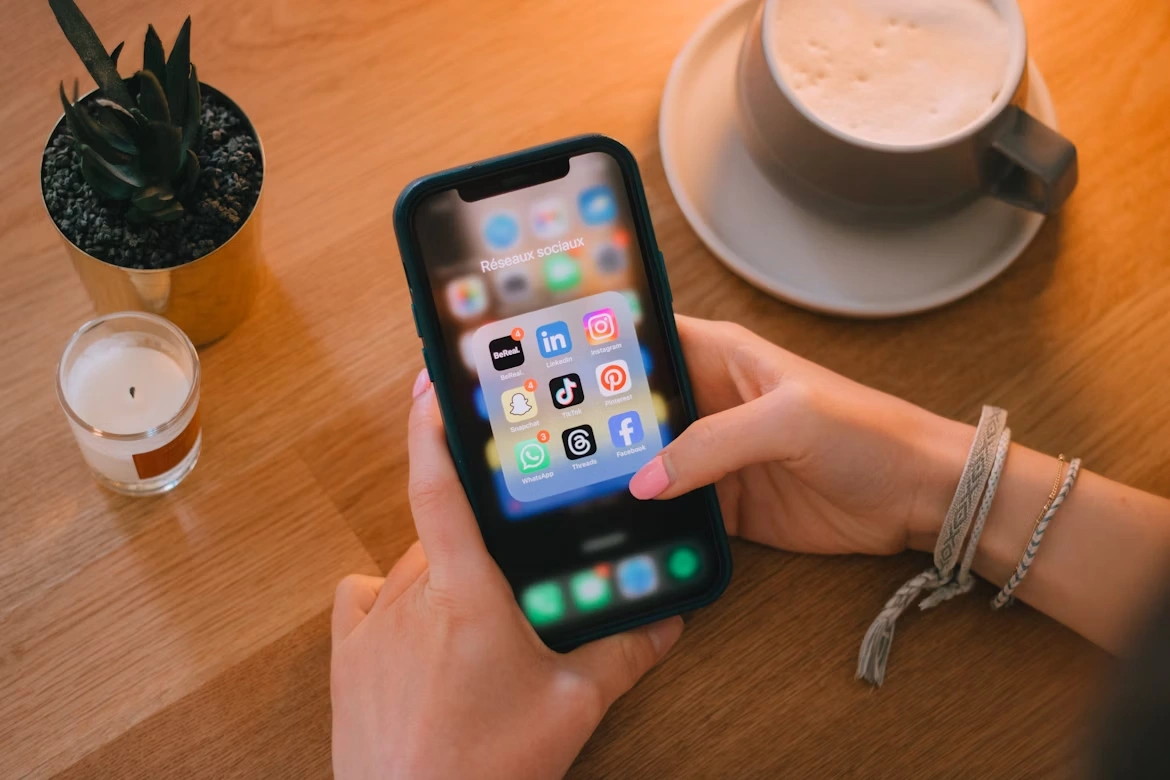
Tech companies hire experts to make apps addictive. They use bright colors, endless feeds, and push notifications. Every feature is designed to pull you back in. Keep you on the app as long as possible.
More time equals more ad money for them. Recognizing these smartphone addiction signs is the first step to taking control back.
Sign #1: You Check Your Phone First Thing in the Morning

Your alarm goes off. Your eyes open. If it’s your phone, you’re not alone. But this morning phone habit might signal something bigger. When your phone beats basic needs.
If your phone comes first, that’s compulsive checking. Your brain treats those notifications like an emergency. They’re not.
The Roll Over Check

You wake up and immediately roll over to grab your phone. You scroll through messages, emails, and social media while still lying down. Minutes pass. Maybe an hour. You haven’t even sat up yet, but you’re already deep in your screen.
Why This Matters?
Checking your phone first thing sets the tone for your whole day. You start in reactive mode instead of control mode. Other people’s messages and posts become more important than your own needs.
This creates morning anxiety too. If your phone battery died overnight or you can’t find it, you feel stressed before your day even starts.
The Incomplete Feeling

People with healthy morning phone habits can start their day without checking their device. They don’t feel like something is missing. If you feel incomplete or anxious without that morning phone check, it’s a red flag. Your device has become too important to your daily routine.
Breaking this pattern is hard but possible. Start by keeping your phone in another room overnight.
Sign #2: You Experience Phantom Vibrations
You feel your phone buzz in your pocket. You reach for it quickly. But when you check, there’s nothing there. No new messages. No missed calls. No notifications at all.
Your Brain Playing Tricks

Phantom vibrations happen when your mind creates fake notifications. Your brain is so used to your phone buzzing that it starts making up vibrations that aren’t real.
This isn’t rare. It’s actually common in heavy smartphone users. Your brain becomes hyperaware of any small sensation near where you keep your phone.
Even When Your Phone Isn’t There
You might feel that familiar buzz while your phone sits on a table across the room. Your body has memorized the feeling so well that random sensations trick your brain. A piece of clothing rubbing against your leg becomes a text message. A small muscle twitch feels like a call coming in.
What This Really Means?

Phantom notifications show deep psychological attachment to your device. Your brain is constantly scanning for phone related signals. It’s like being on high alert 24/7.
This hypervigilance is exhausting. Your mind can’t relax because it’s always waiting for the next notification.
Sign #3: You Can’t Go 30 Minutes Without Checking

Your phone sits face down on the table. But you still flip it over every few minutes. This isn’t about staying connected. It’s about compulsion.
When Checking Becomes Compulsive
Normal phone use has breaks. You check messages, then put your phone away for an hour. Phone addiction doesn’t work that way. The urge hits every 20-30 minutes.
You’ll check even when you know nothing new happened. You checked five minutes ago. Your brain knows this. But your hand reaches for the phone anyway.
It Ruins Your Focus

Try reading a book with your phone nearby. Count how many times you want to check it. Most people can’t make it past one chapter. This happens because your brain splits its attention. Part of you reads. Another part wonders about notifications. Neither gets your full focus.
Your Phone Interrupts Everything
Phone addiction doesn’t respect boundaries. Movies with friends. Important meetings. Dinner conversations. Study sessions. You might apologize and say just one second. But one check becomes five. Five becomes ten.
People notice. They feel less important than your phone. In that moment, they are.
Waiting Creates Panic
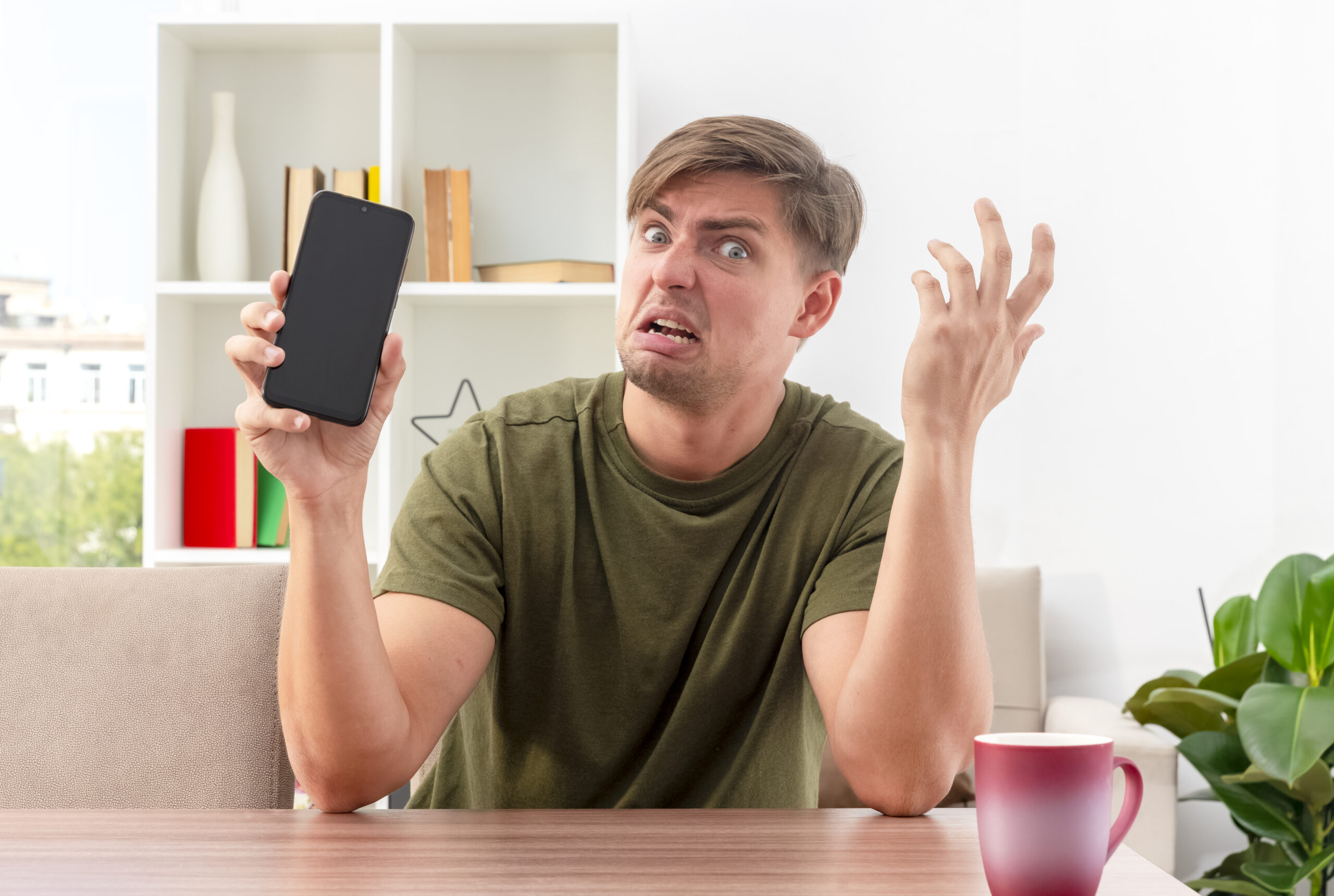
Dead battery, Panic,No WiFi, Anxiety. Phone in another room? You feel disconnected from the world. This anxiety isn’t rational. Humans survived thousands of years without phones. But addiction rewires your brain. It makes checking feel necessary for survival.
The fear gets stronger over time. Soon, 30 minutes without checking feels impossible.
Sign #4: Your Phone Battery Dying Causes Panic
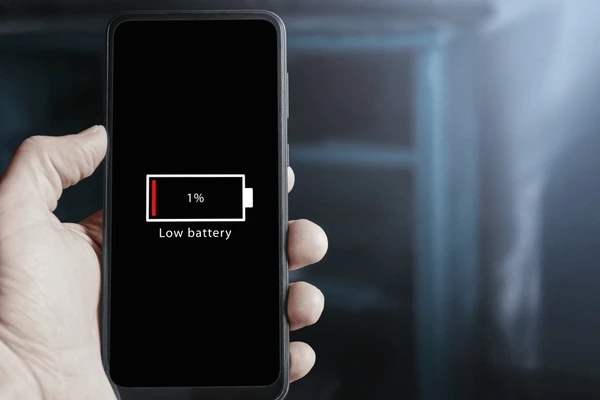
20% battery left. Your heart starts racing. 15% you search frantically for a charger. 10%. Full panic mode. If this sounds like you, your phone isn’t just a tool anymore. It’s become a lifeline.
When Low Battery Means High Anxiety
Normal phone users see 20% battery and think, “I should charge this soon.” They don’t stress about it. Phone addicts see 20% and feel genuine fear. Their breathing changes. Their palms sweat. Some people describe it as drowning.
This isn’t about missing calls. It’s about losing connection to your digital world. And that world has become more real than the physical one around you.
You Always Have Backup Plans

Phone addicts pack like they’re going camping. Car charger. Wall charger. Portable battery. Maybe two portable batteries. You scout for outlets everywhere you go. Coffee shops. Airports. Even friends’ houses. You know which bathroom stalls have charging stations.
Your Schedule Revolves Around Power
You plan your day around battery life. That two hour movie. Better charge first. Long dinner with friends. You arrive early to find a table near an outlet. You’ve probably left events early because your phone was dying. Or stayed later than planned because you found a place to charge.
Being Unreachable Feels Dangerous
Dead phone equals cut off from the world. What if you miss something important. But here’s the truth emergencies happened before smartphones. People survived. They found ways to communicate.
Your fear isn’t about missing real emergencies. It’s about missing the constant flow of digital connection that your brain now craves.
Sign #5: You Sleep with Your Phone Next to Your Bed

Your phone sits on your nightstand. Within arm’s reach. Ready for action at 3 AM. You tell yourself it’s just your alarm clock. But deep down, you know that’s not the whole truth.
The Alarm Clock Excuse
“I need it for my alarm” is the most common reason people give. But alarm clocks cost $10. Your phone costs $800. You can’t stand being disconnected for eight hours. Sleep feels like wasted time when you could be scrolling.
44% of people admit they can’t go 24 hours without their phone. That includes the eight hours you’re supposed to be unconscious.
Middle of the Night Checking
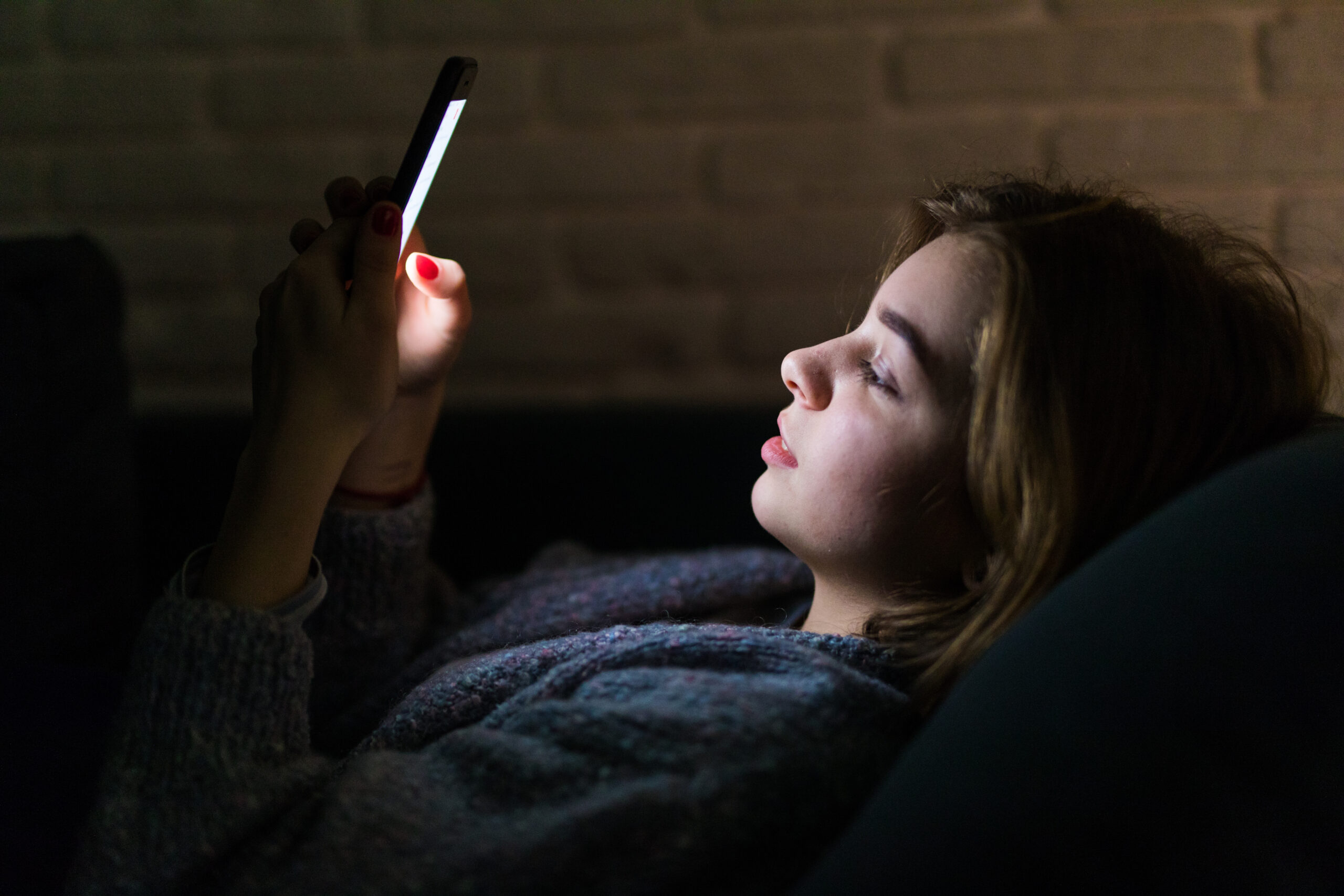
You wake up at 2 AM to use the bathroom. Before your feet hit the floor, your hand reaches for your phone. “Just checking the time,” you think. But then you see notifications. Messages. Updates. Suddenly you’re wide awake, scrolling through social media in the dark.
This happens because your brain never fully disconnects. Even while sleeping, part of you stays alert for digital signals.
Your Sleep Pays the Price
Phone screens emit blue light. This light tricks your brain into thinking it’s daytime. Your body stops making melatonin, the hormone that makes you sleepy. Even if you don’t check your phone at night, having it nearby affects your sleep. Your brain knows it’s there. It stays slightly activated, waiting for buzzes and beeps.
You might fall asleep fast, but your sleep quality suffers. You wake up tired even after eight hours in bed.
The Bedroom Should Be Sacred

Your bedroom used to be for two things: sleep and rest. Now it’s command central for your digital life. This blurs the line between wake time and sleep time. Your brain can’t tell when to shut down because the stimulation never stops. Real sleep requires real separation. Your phone needs to stay in another room.
Sign #6: You Feel Lost Without Your Phone

You’re halfway to work when you realize it. Your phone is sitting on your kitchen counter. If you’re like most people with phone addiction, you’re already making a U turn.
The Panic of Being Phoneless
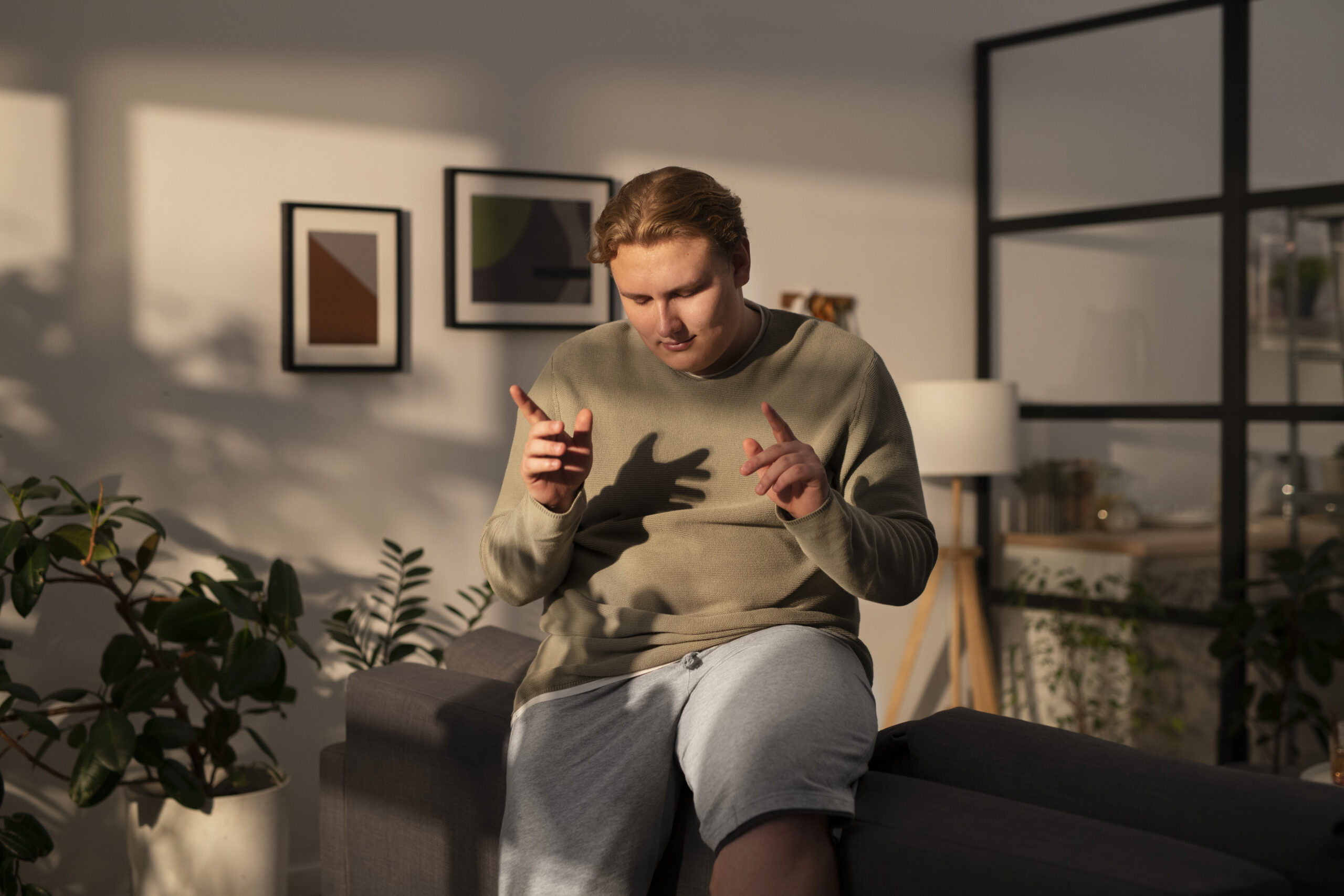
That sinking feeling in your stomach isn’t about missing calls. It’s deeper than that. You feel exposed. Vulnerable. Like you left the house naked. 76% of people get nervous when they don’t know where their phone is. But for phone addicts, “nervous” doesn’t cover it. It’s closer to panic.
You Can’t Function Normally
Without your phone, simple tasks feel impossible. Waiting in line becomes torture. You don’t know what to do with the silence. You reach for your pocket every few minutes. Your hand finds nothing. The disappointment hits fresh each time. Some people describe it as losing a limb. Your phone has become part of your body.
Going Back Is Always Worth It
You’ve probably driven home to get your forgotten phone. Maybe you were already 20 minutes away. Maybe you were late for something important. But the discomfort of being phone-free felt worse than the inconvenience of going back. You told yourself it was “just in case of emergencies.” But really, you couldn’t handle the disconnection.
Your Phone Has Become Your Security Blanket
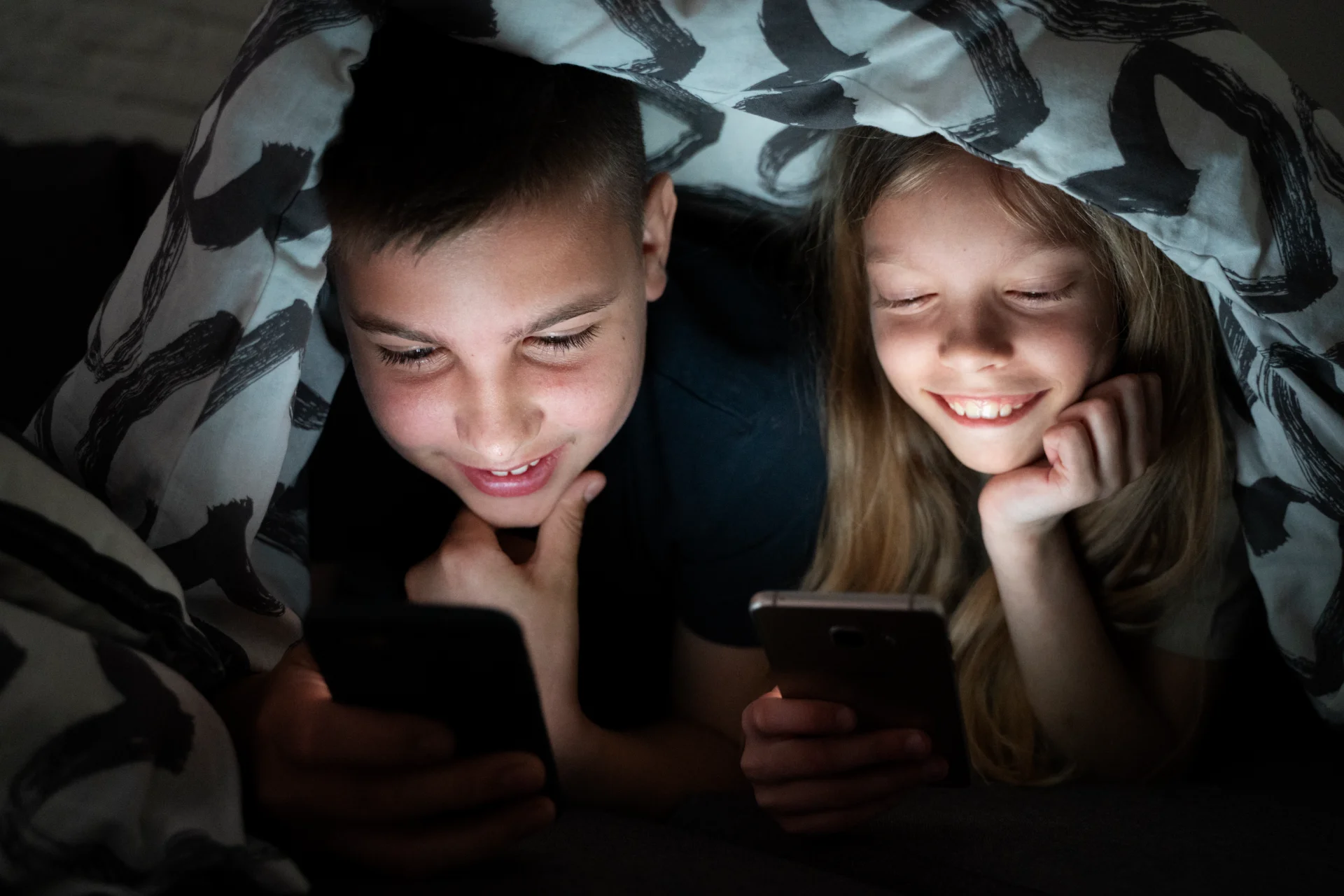
Children carry blankets for comfort. Adults carry phones. Both serve the same purpose they make scary situations feel manageable. Kids eventually outgrow their blankets. Phone addiction makes you more dependent over time, not less.
Sign #7: Your Screen Time Exceeds 6 Hours Daily
Your phone buzzes. You check it “real quick.” Three hours later, you look up and wonder where your evening went. Check your numbers right now go to your phone’s settings. Look at your screen time report. If you’re hitting 6+ hours daily, you’ve crossed into problem territory. Just 2 hours for recreational screen use.
The Time Trap

Your brain loses track of time when you’re on your phone. What feels like 20 minutes turns into 2 hours. This isn’t your fault apps are designed to make time disappear.
Gen Z users average over 6 hours of daily screen time. Americans overall hit 5 hours and 16 minutes every single day. That’s like having a part time job you don’t get paid for.
What You’re Missing?
Those 6+ hours steal from everything else. Sleep suffers. Exercise stops. Real conversations get cut short. Hobbies collect dust. Your excessive screen time isn’t just a number on a chart. It’s showing you exactly what’s taking over your life.
Sign #8: You Choose Phone Over Face-to-Face Interaction
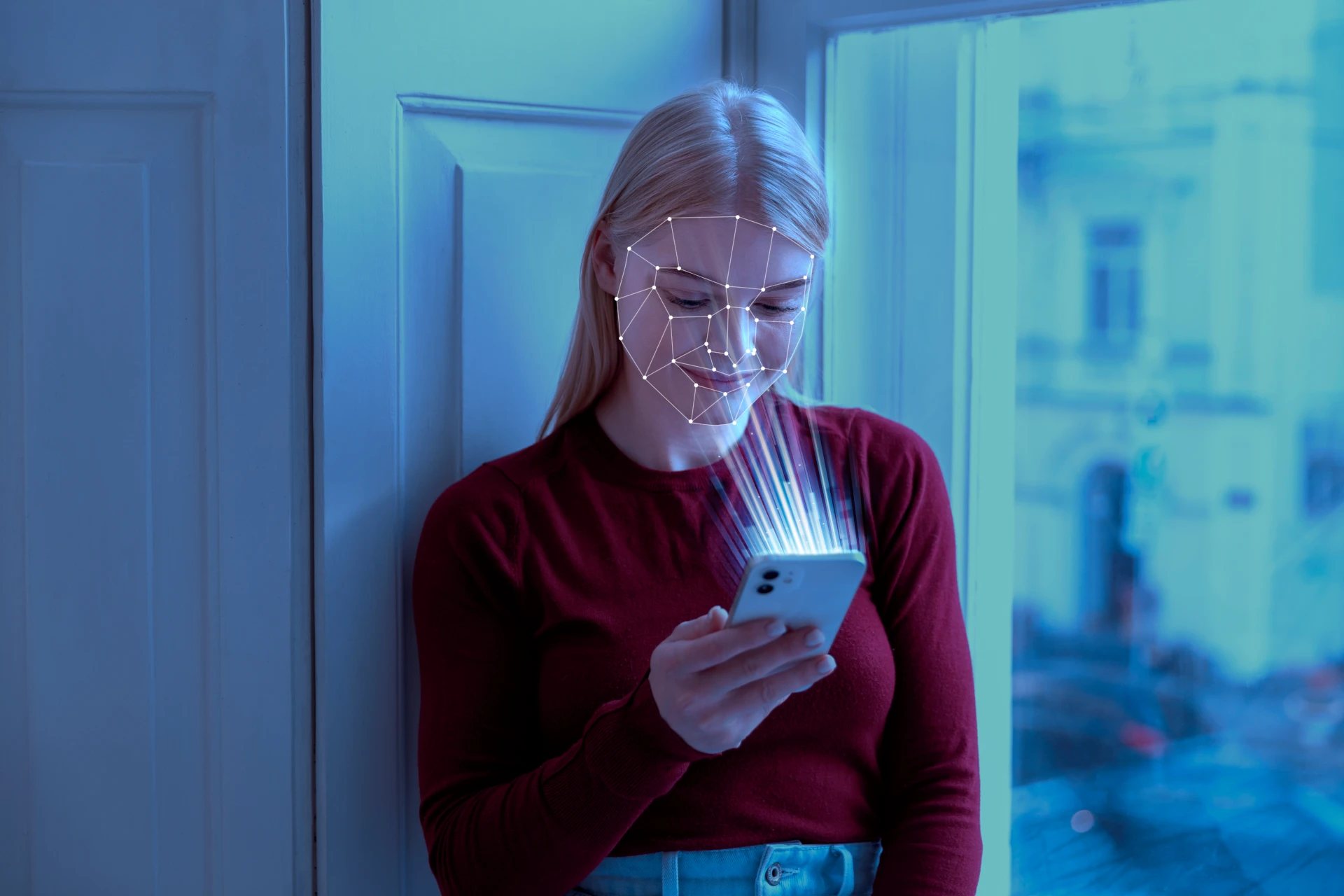
Your best friend is sharing something personal. But that notification sound pulls your eyes to your screen. Again. You’re sitting together, but you’re not really there. When your phone wins you check messages during dinner conversations.
You scroll through apps while someone tells you about their day. You answer texts mid sentence when people are talking to you. Your phone gets more attention than the humans in the room.
The Eye Contact Test
Real conversations need eye contact. But your phone breaks that connection every few minutes. People notice when your eyes keep drifting to your screen. They feel like they’re competing with your notifications. And losing.
Your Relationships Are Breaking Down

Here’s the harsh truth: 60% of adults fight with their partners about screen time. That’s not just a statistic. That’s relationships cracking under phone pressure.
When you pick virtual connections over real ones, people feel ignored. Friends think they matter less than your apps. Family members stop trying to get your full attention.
The Hidden Cost
Social isolation grows when screens replace faces. You think you’re staying connected, but you’re actually pulling away from the people who care most. Your phone promises connection but delivers loneliness instead. The people in front of you deserve better than half your focus.
Sign #9: You Experience Withdrawal Symptoms
Your phone battery dies. Instantly, your heart starts racing. Your hands feel sweaty. You can’t think about anything else. This isn’t normal stress. This is withdrawal. Your body rebels when your phone isn’t available, your body goes into panic mode.
You get anxious and irritated over nothing. Your hands might shake or sweat. You feel restless and can’t sit still. You can’t focus on anything because your brain keeps screaming for that phone fix.
It’s Real Withdrawal
These symptoms mirror what happens with substance addiction. Your brain has become dependent on the constant stimulation your phone provides. When that stimulation stops, your nervous system freaks out. The anxiety hits fast and hard.
Common Trigger Situations

Airplane mode sends you into a spiral. Dead zones make you panic. A low battery feels like an emergency. You’ve probably driven around looking for signal bars or searched frantically for a charger. Your phone going missing ruins your entire day.
The Wake-Up Call
If you’re sweating over a dead phone, that’s not quirky or funny. That’s your brain showing you how hooked you really are. Normal people don’t get physical symptoms. And that tells you everything you need to know.
Sign #10: You Can’t Focus on One Task Anymore

You sit down to write an email. Three sentences in, you grab your phone to check . Then you remember you need to reply to that text. Twenty minutes later, you’re still on sentence three. Your phone has broken your brain’s ability to focus. And it’s not just you.
Your Attention Span Is Shrinking Fast
The average human attention span has dropped to just 8 seconds. That’s shorter than a goldfish. Your brain used to be able to focus for 12 seconds back in 2000. But smartphones changed everything.
Every time your phone buzzes, your brain gets a tiny hit of dopamine. That’s the same chemical you get from eating chocolate or winning money. Your brain starts craving these hits. So it makes you check your phone more often.
Task-Switching Becomes Your Default Mode

You used to finish one thing before starting another. Now you do five things at once and finish none of them well. This isn’t multitasking. It’s attention switching. And it’s making you dumber.
48% of Gen Z workers say their smartphones hurt their work productivity every single day. They can’t focus long enough to do deep, meaningful work..
The Real Cost of Lost Focus
You’re losing your ability to think deeply. Complex problems require sustained attention. Creative breakthroughs happen during long periods of focus. Important relationships need your full presence. Your phone is stealing all of that from you.
Quick Focus Test
Set a timer for 10 minutes. Read something without checking your phone. Start with phone free blocks. Put your phone in another room for 15 minutes while you work. Build up to longer periods. Your brain can learn to focus again, but it takes practice.
Sign #11: Your Body Hurts From Phone Use
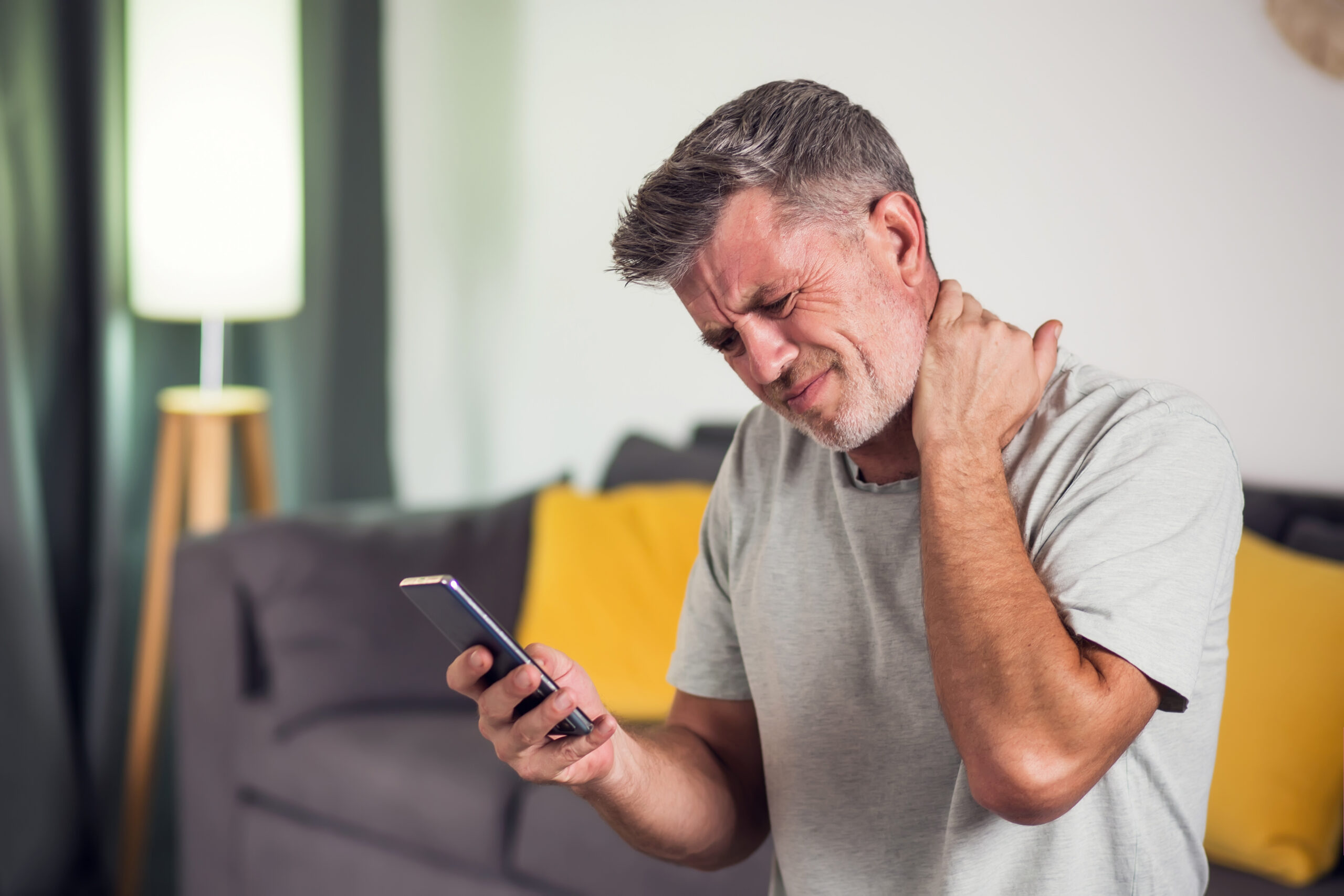
Your neck aches. Your head pounds. Your eyes burn after scrolling for hours. These aren’t random pains. They’re warning signs that your phone habit is damaging your body. Text neck problem you’ll see people hunched over their phones like question marks. This position puts 60 pounds of pressure on your neck. That’s like carrying a 7 year old on your shoulders all day.
Your spine wasn’t built for this. When you look down at your phone, you’re forcing your neck into an unnatural curve. Do this for hours daily, and your muscles start to scream.
Tired Eyes and Sleepless Nights

Staring at a small screen makes you blink less. This dries out your eyes and causes strain. Add blue light exposure, and you’ve got a recipe for headaches and tired eyes. Many people also hold their phones too close to their faces. This forces your eye muscles to work overtime trying to focus.
Sleep gets wrecked blue light from screens tricks your brain into thinking it’s daytime. Use your phone before bed, and your body won’t make enough melatonin. That’s the hormone that helps you fall asleep.
Quick Fix
Hold your phone at eye level. Take breaks every 20 minutes to look at something far away. Stop using your phone one hour before bed. If your body hurts from phone use, that’s your warning system telling you to change something.
Sign #12: You’ve Tried to Cut Back But Can’t
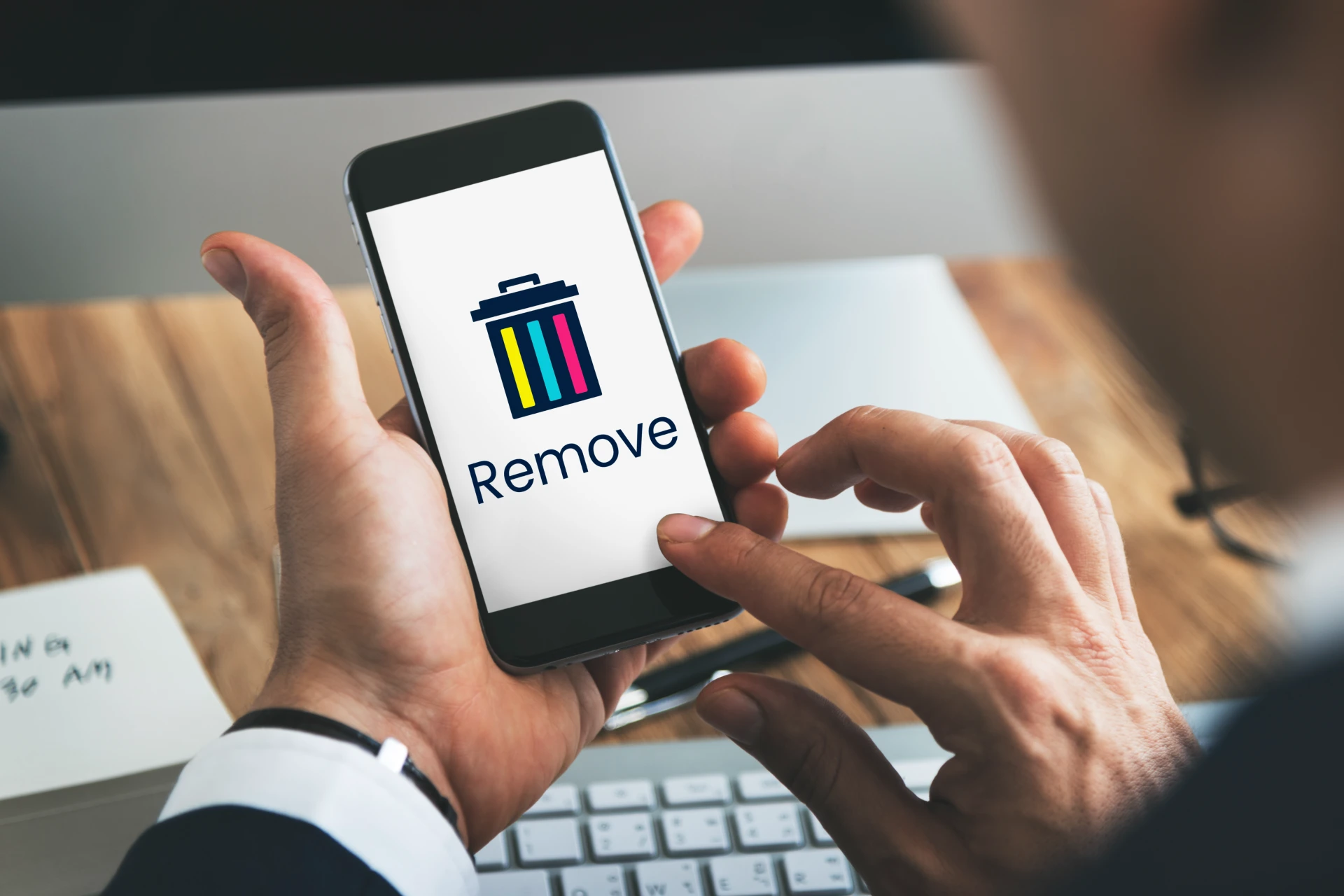
You’ve deleted apps. Set screen time limits. Promised yourself you’d use your phone less. But here you are again. Scrolling at 2 AM. Breaking every rule you made.
Common Excuses Your Brain Makes
I need to check the weather. Then you’re on social media for an hour. Just one quick text. But you end up watching videos instead. I’ll put it away after this post. That post turns into 50 more posts. These aren’t character flaws. Your phone is designed to be hard to put down.
Why Willpower Isn’t Enough?
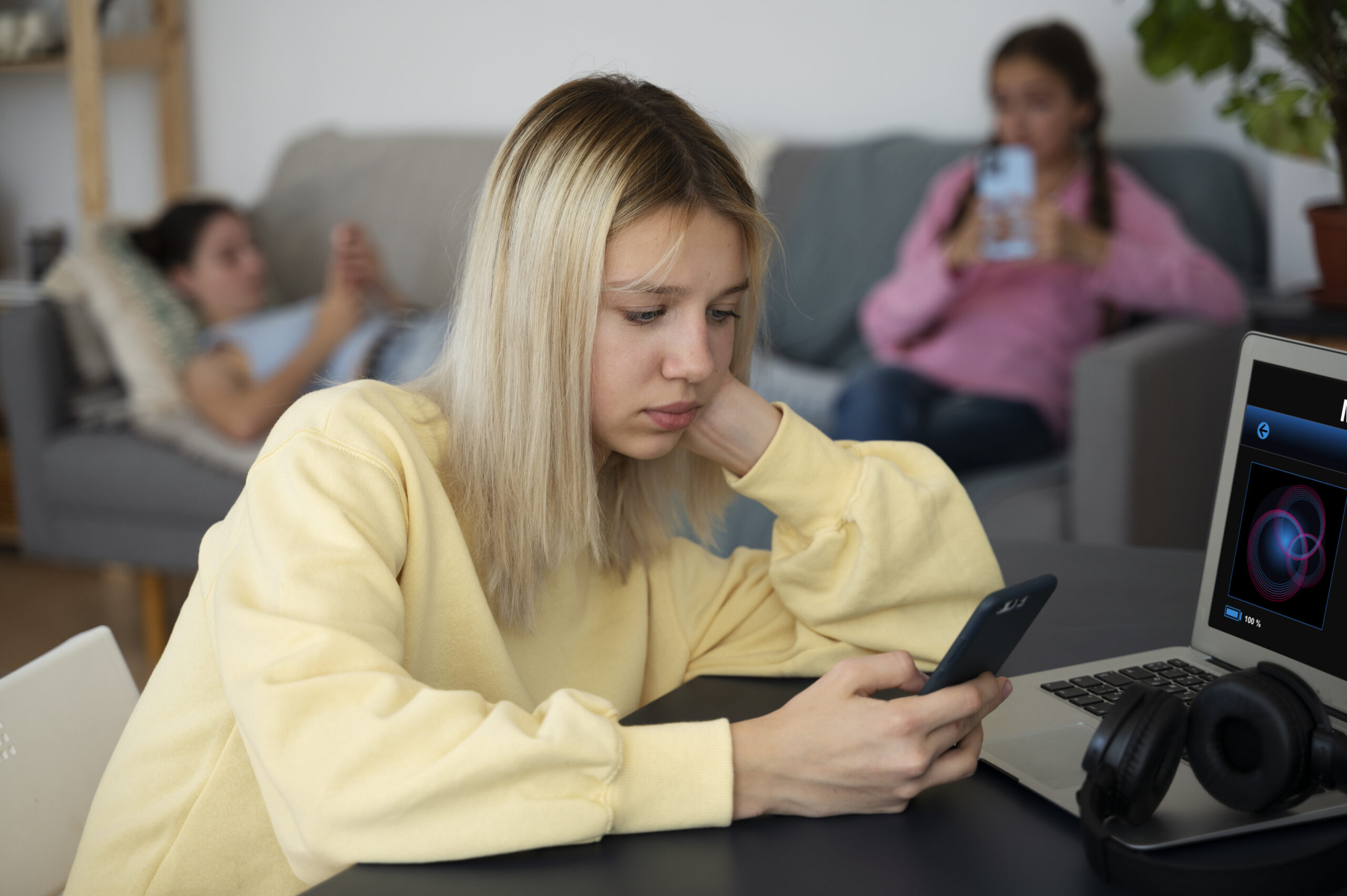
Phone addiction recovery needs more than just trying harder. The apps you use have teams of engineers making them addictive. You’re fighting billion dollar companies with your willpower alone.
The Real Solution
Instead of going cold turkey, make your phone boring. Remove social media apps. Turn off most notifications. Put your phone in another room when you sleep.
If you’ve tried to quit and failed, you’re not weak. You’re human. And you’re fighting something designed to be addictive.
2. What to Do If You Recognize These Signs
You just read through 12 warning signs. Maybe you saw yourself in half of them. Or all of them. Here’s what to do next. Stop judging yourself. Smartphone addiction treatment starts with being honest without being mean to yourself.
You’re not weak or broken. You’re dealing with something designed to be addictive. Tech companies spend billions making phones hard to put down. Cut yourself some slack.
Check Your Real Usage Numbers
Most people guess wrong about their phone time. Go to Settings and find “Screen Time” on iPhone or “Digital Wellbeing” on Android. Look at your daily average. Be ready for a shock. The average American uses their phone 5 hours and 16 minutes daily. You might be higher.
Make Your Phone Boring

Remove social media apps from your home screen. Turn your phone to grayscale mode. This makes it less visually appealing. You can still use apps when needed, but you won’t want to scroll mindlessly. Replace phone time with real activities.
Your brain needs something to do instead of scrolling. Reading actual books. Taking walks without your phone. Talking to people face to face, learning a hands on hobby.
When To Get Professional Help
Phone addiction recovery sometimes needs expert help. Your relationships are suffering. Work or school performance dropped. You feel depressed or anxious without your phone. You’ve tried multiple times to cut back and failed.
Cognitive behavioral therapy works well for phone addiction. A therapist can help you find the feelings you’re trying to avoid with your phone.
Useful Apps For Digital Wellness

Using apps to fix phone addiction sounds weird. But these tools help. Freedom blocks distracting apps and websites. Moment tracks usage and sends reminders. Forest gamifies staying off your phone. Cold Turkey completely blocks access during set times.

